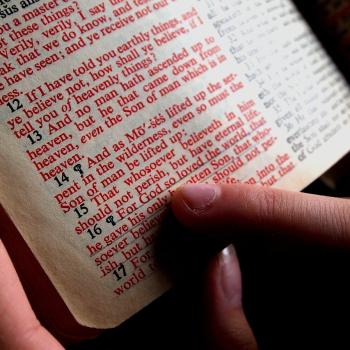What is often overlooked in the Old Testament are the instances in which women are proclaiming the gospel or “good news.” There are two significant texts in particular that depict this phenomenon—Psalm 68:11 and Isaiah 40:9. Let’s take a closer look at these verses.

Women who Bring the Good News of an Enemy’s Defeat (Psalm 68:11)
In Psalm 68:11–12 the Scripture reads as follows:
The Lord will give a word—the women who bring good news are a great host. They say, “Kings of the army hosts they run, run away, and she who remains in the house divides the spoil.”
The Lord Adonay (אדני) is the one who commands the women to proclaim the message of the flight of kings and their armies. This speaks of the defeat of foreign enemies against David’s rule (notice Psalm 68:1). Alternatively, the Greek Septuagint version (LXX) stresses the victory of the beloved forces.* Either way, God is imagined as the warrior who defends David’s kingdom, and so praise goes to the Lord.
What is striking is that, in the Hebrew version of this passage, the Lord God gives the command for Israel’s women to proclaim this good news. The Psalm uses bśr (בשׂר: to give news, herald glad tidings) as a feminine plural participle here. Women bring the good news.
But this is not as unusual as it first might appear to be.
Women Announcing Victory
There are other instances in Scripture where we find women proclaiming victory or announcing an enemy’s defeat:**
When God destroys Pharaoh’s armies at the Red Sea, Miriam and other women dance, bang their tambourines, and sing exalting the LORD. The horse and the rider, they proclaim, are defeated in the sea (Exod 15:20–21).
Barak defeats Sisera through the help of a woman named Jael. She drives a nail through the Canaanite commander’s head. Deborah the prophetess sings and proclaims with Barak a song of victory in this regard (Judges 5).
When David defeats Goliath, it is the women of the Israelite cities who come out and dance, singing and declaring a victory statement. The declaration is that Saul has slain his thousands, and David his ten thousands (1 Sam 18:6–7).
A Woman Who brings the Good News to Zion (Isa 40:9)
A second example of feminine proclamation of the gospel is found in Isaiah 40:9:
Upon the high mount, go up, heralder of good news to Zion! Lift up in strength your voice, heralder of good news to Jerusalem! Lift up, do not fear, say to the towns of Judah, “Behold your God!”
In the Hebrew text the bringer of good news, again bśr, is again in the feminine participle form, this time as a singular. The heralder of good news here is a woman, and the command is for her to go up and deliver the good news to Zion, Jerusalem, and the towns of Judah. Her message is “Behold your God!”
As women announce the good news in Psalm 68, so here in Isaiah 40 a woman heralds the good news of the return of God to his holy mountain of Zion in Jerusalem. This speaks of the restoration of Israel after exile.
This woman is perhaps seen collectively of Hebrew women who announce good news on happy and victorious occasions (see Isa 40:9 NIV). Alternatively, some versions interpret the woman as Zion and Jerusalem, who is to announce the news of God’s return to the towns of Judah (see Isa 40:9 NRSVue).***
Conclusion
Psalm 68 may be one of the first texts that mentions proclaiming the gospel (good news) in a sacred context in Scripture. And women are the messengers. Likewise, the first time Isaiah mentions the good news, it is a woman who proclaims it.
If the gospel (good news) in the New Testament centers on Jesus’s death and resurrection (cf. 1 Cor 15:3–4), it is noteworthy that our Gospels generally have Mary Magdalene and other women as the first proclaimers.
Notes
* Differently also in the LXX, it is the Lord (κύριος) who gives the word, now to a masculine group of “those who bring good news” (εὐαγγελιζομένοις).
** Helpful here is O. Schilling, Theological Dictionary of the Old Testament (Grand Rapids: Eerdmans, 1977) 2:315.
*** However, in parallel passages like Isa 41:27 and 52:7, the good news is given to Zion rather than by Zion (though the herald is masculine in these instances). The LXX of Isa 40:9 changes the herald to the masculine (once again!), this time to a singular: ὁ εὐαγγελιζόμενος.














